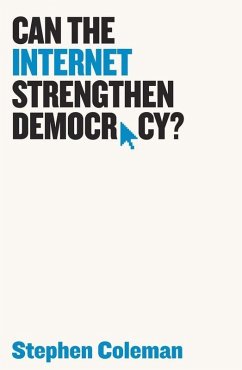
The Nature of Conspiracy Theories (eBook, ePUB)
Versandkostenfrei!
Sofort per Download lieferbar
18,99 €
inkl. MwSt.
Weitere Ausgaben:

PAYBACK Punkte
0 °P sammeln!
Conspiracy theories seem to be proliferating today. Long relegated to a niche existence, conspiracy theories are now pervasive, and older conspiracy theories have been joined by a constant stream of new ones - that the USA carried out the 9/11 attacks itself, that the Ukrainian crisis was orchestrated by NATO, that we are being secretly controlled by a New World Order that keep us docile via chemtrails and vaccinations. Not to mention the moon landing that never happened. But what are conspiracy theories and why do people believe them? Have they always existed or are they something new, a feat...
Conspiracy theories seem to be proliferating today. Long relegated to a niche existence, conspiracy theories are now pervasive, and older conspiracy theories have been joined by a constant stream of new ones - that the USA carried out the 9/11 attacks itself, that the Ukrainian crisis was orchestrated by NATO, that we are being secretly controlled by a New World Order that keep us docile via chemtrails and vaccinations. Not to mention the moon landing that never happened. But what are conspiracy theories and why do people believe them? Have they always existed or are they something new, a feature of our modern world? In this book Michael Butter provides a clear and comprehensive introduction to the nature and development of conspiracy theories. Contrary to popular belief, he shows that conspiracy theories are less popular and influential today than they were in the past. Up to the 1950s, the Western world regarded conspiracy theories as a legitimate form of knowledge and it was therefore normal to believe in them. It was only after the Second World War that this knowledge was delegitimized, causing conspiracy theories to be banished from public discourse and relegated to subcultures. The recent renaissance of conspiracy theories is linked to internet which gives them wider exposure and contributes to the fragmentation of the public sphere. Conspiracy theories are still stigmatized today in many sections of mainstream culture but are being accepted once again as legitimate knowledge in others. It is the clash between these domains and their different conceptions of truth that is fuelling the current debate over conspiracy theories.
Dieser Download kann aus rechtlichen Gründen nur mit Rechnungsadresse in D ausgeliefert werden.













